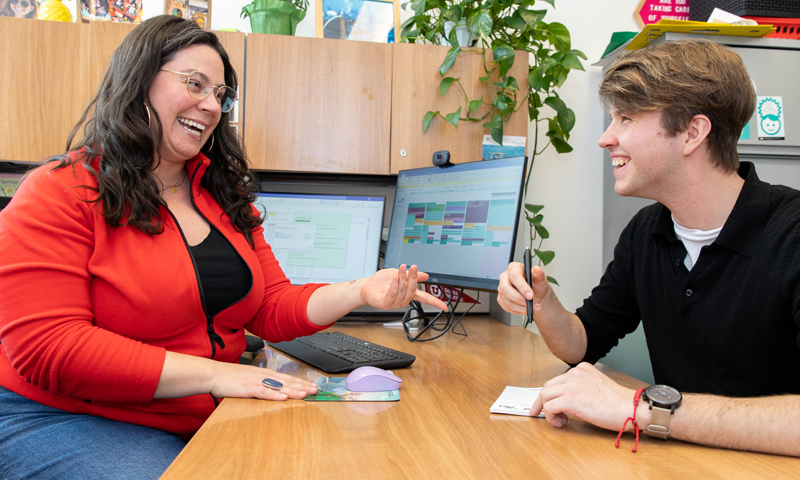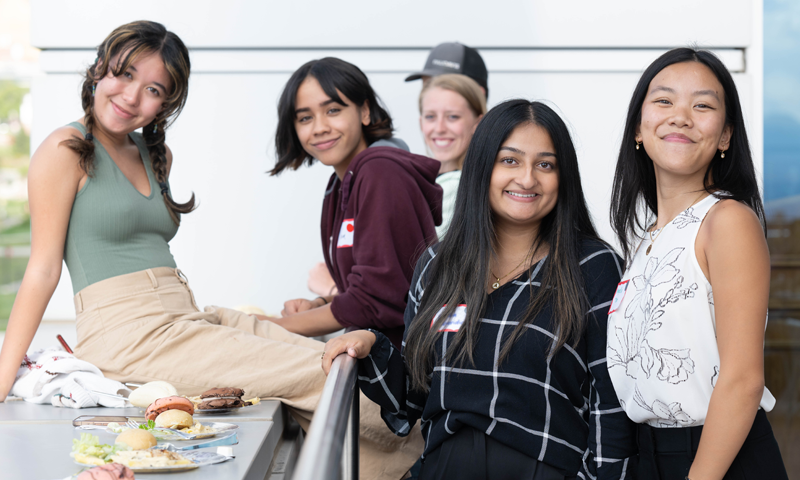We’re here for U!
Your Eccles Experience includes premier wrap-around support throughout your academic journey. Eccles students have dedicated academic advisors and business career coaches, plus find free tutoring for many of your business classes.
Connect with the Eccles community via the Office of Student Engagement & Success and your Business Student Government.


Office of Student Engagement & Success
The Office of Student Engagement & Success (SES) provides opportunities to build knowledge, skills, community, and cultural competency. It houses Business Student Government, Eccles Student Organizations, the In A Pinch Initiative, and the Business Tutoring Center.
Utilizing data and assessment, SES collaborates with the Eccles School leadership to enhance and optimize student services, support, and programming.
Business Student Government (BSG)
BSG is a dedicated team of student leaders that connect with students, advocate for student voice, and foster a strong Eccles student community.
Financial Aid & Scholarships
Eccles provides many scholarship opportunities awarded through our cohort programs, centers and institutes, and annual applications. Learn what scholarships and financial aid are available, how to apply, and important deadlines to get your slice of the pie.
Office of Transformative Student Experiences
The Office of Transformative Student Experiences hosts several signature cohort programs, including our First Ascent Scholars, Opportunity Scholars, and Rising Business Leaders Live & Learn programs. International students can also access specialized support.




